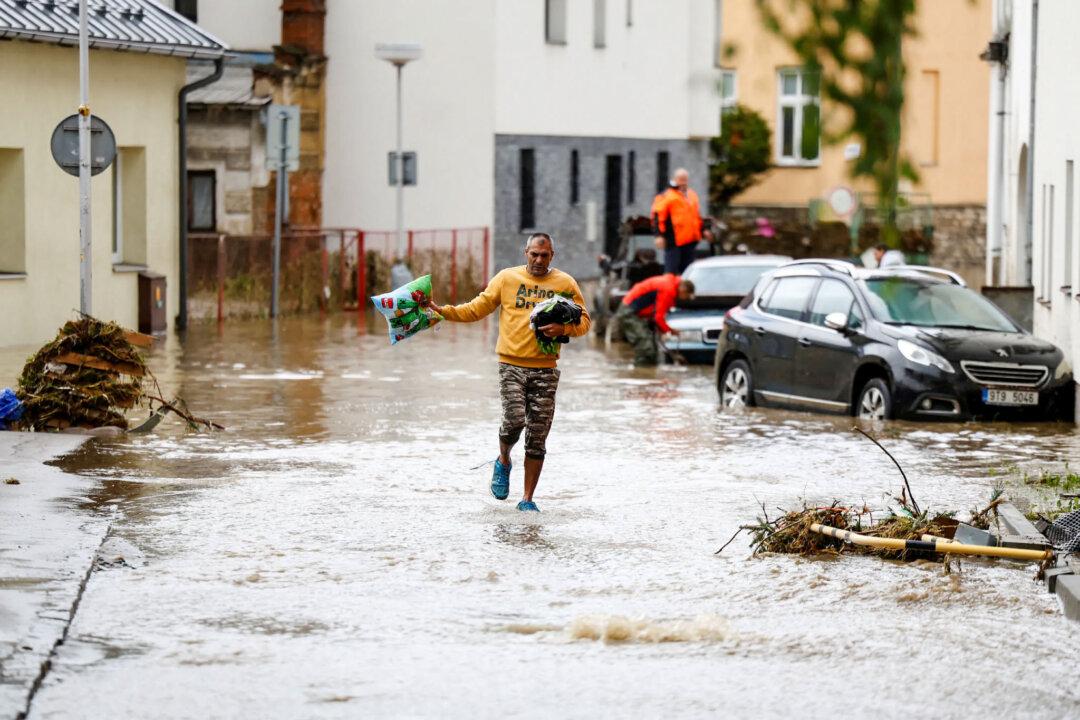Flooding across Central Europe has resulted in the deaths of at least 10 people and led to the evacuation of tens of thousands, with towns and industrial sites in countries from Poland to Romania affected by the rising waters after several days of heavy rainfall.
Storm Boris caused rivers to swell across central and eastern Europe on Sept. 15 and 16 since the rains began on Sept. 13, according to officials.





